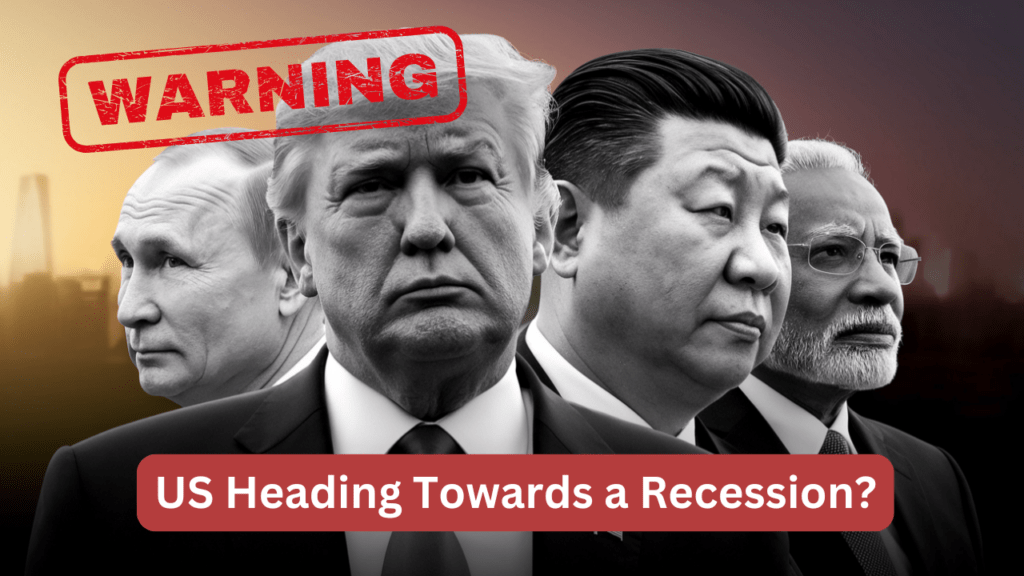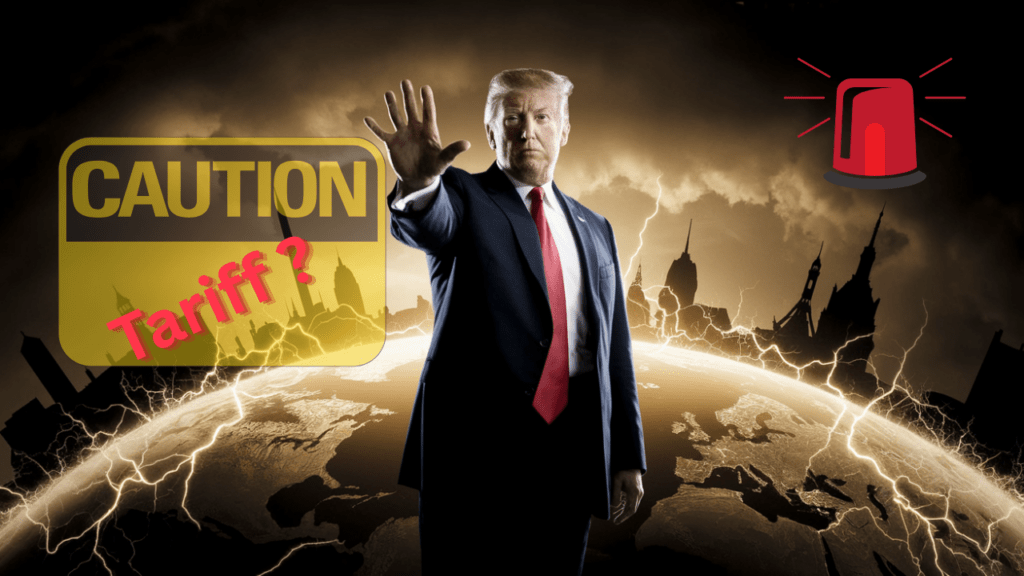Recession fears are back. The US economy, which seemed unstoppable post-pandemic, is now flashing warning signs—high interest rates, slowing job growth, and nervous investors. So, is the world’s largest economy about to hit a wall? And more importantly, how will that impact the global markets?
Let’s break it down in simple terms.
Are We Actually Heading Towards a Recession?
First, let’s clear something up: A recession isn’t a sudden market crash or a single bad quarter—it’s a prolonged slowdown in economic activity. Right now, the US isn’t in a recession, but it’s walking a tightrope.
Here’s why people are worried:
🚨 High Interest Rates: The Federal Reserve aggressively hiked rates to curb inflation. While that helped cool down prices, it’s making borrowing expensive for businesses and consumers.
📉 Stock Market Volatility: Investors are on edge. Every economic report, Fed speech, or even a tweet from a major CEO can send markets swinging wildly.
💼 Slowing Job Growth: Hiring has slowed. While unemployment is still low, layoffs in major industries—tech, finance, and even manufacturing—are raising concerns.
Put all of this together, and you get an economy that’s not crashing but definitely struggling to find solid ground.
Why The World Is Worried?
The US isn’t just another country—it’s the engine of the global economy. When it sneezes, the world catches a cold. If a recession happens, here’s how it could play out globally:
🌍 Stock Markets Could Dip: The S&P 500 and Nasdaq set the tone for global investors. A US downturn means panic selling and falling markets worldwide.
🚢 Global Trade Takes a Hit: Countries like China, Germany, and Japan, which rely heavily on exporting to the US, will see lower demand, slowing their own economies.
🛢️ Oil Prices Could Fall: A US slowdown often leads to lower energy consumption, which could bring down oil prices. That’s great for oil-importing countries but a nightmare for oil-producing nations.
💵 Currency Turmoil: The US dollar is the world’s reserve currency. If the US economy weakens, investors may rush to safer assets, causing wild swings in global currency markets.
In short? Even if your country isn’t going into a recession, your stock market, fuel prices, and currency values might still feel the heat.
Final Thoughts
So, will the US actually fall into a recession? No one can say for sure. Some experts believe that the worst is over, while others warn that the full impact of high interest rates hasn’t hit yet.
But one thing is clear: uncertainty is here to stay. Markets will remain volatile, businesses will be cautious, and global economies will have to adapt to this new reality.
🚀 What should you do? If you’re an investor, now’s the time to be smart—diversify your portfolio, avoid panic selling, and keep an eye on long-term trends.
Do you think the US is heading towards a full-blown recession, or will it dodge the bullet? Let’s discuss in the comments!


